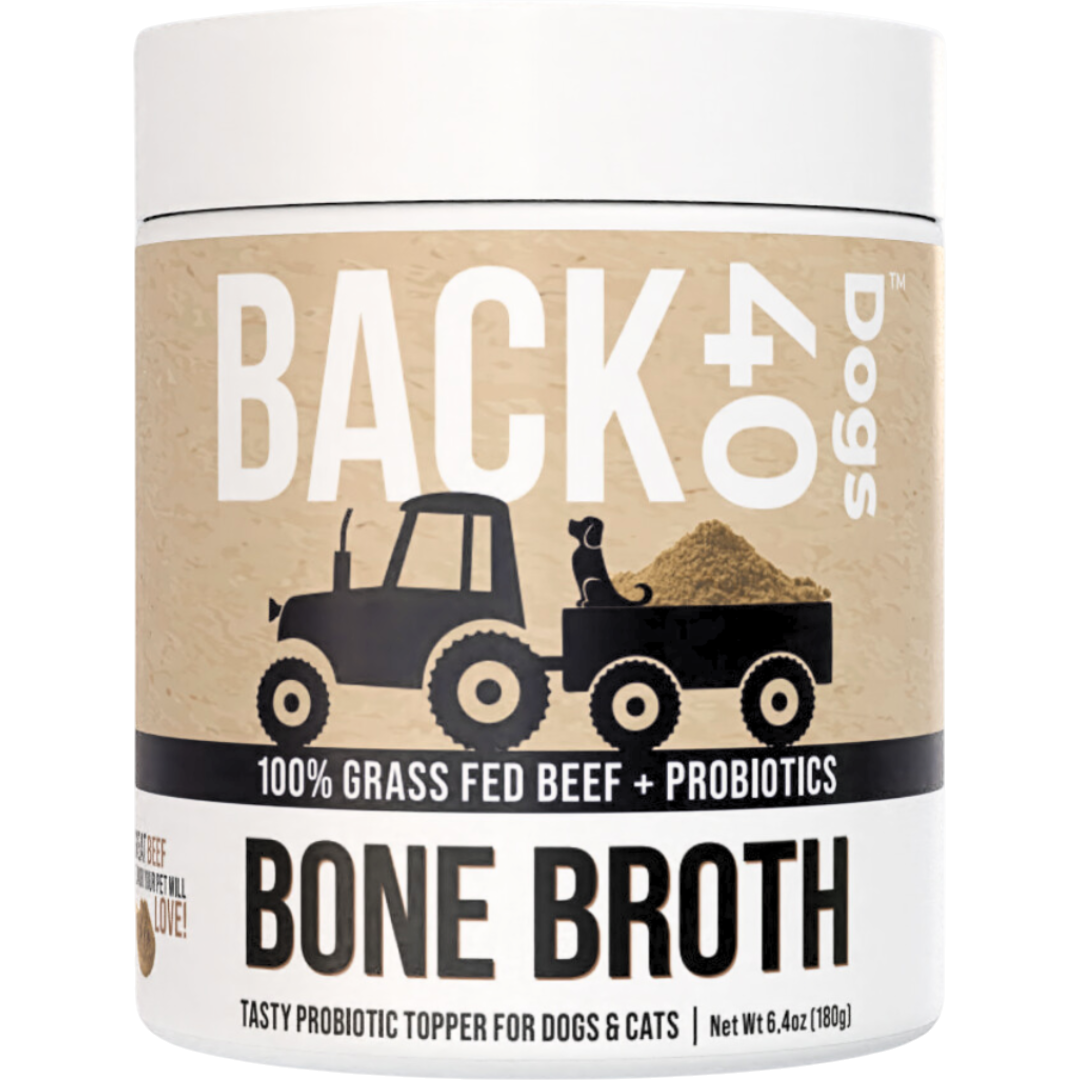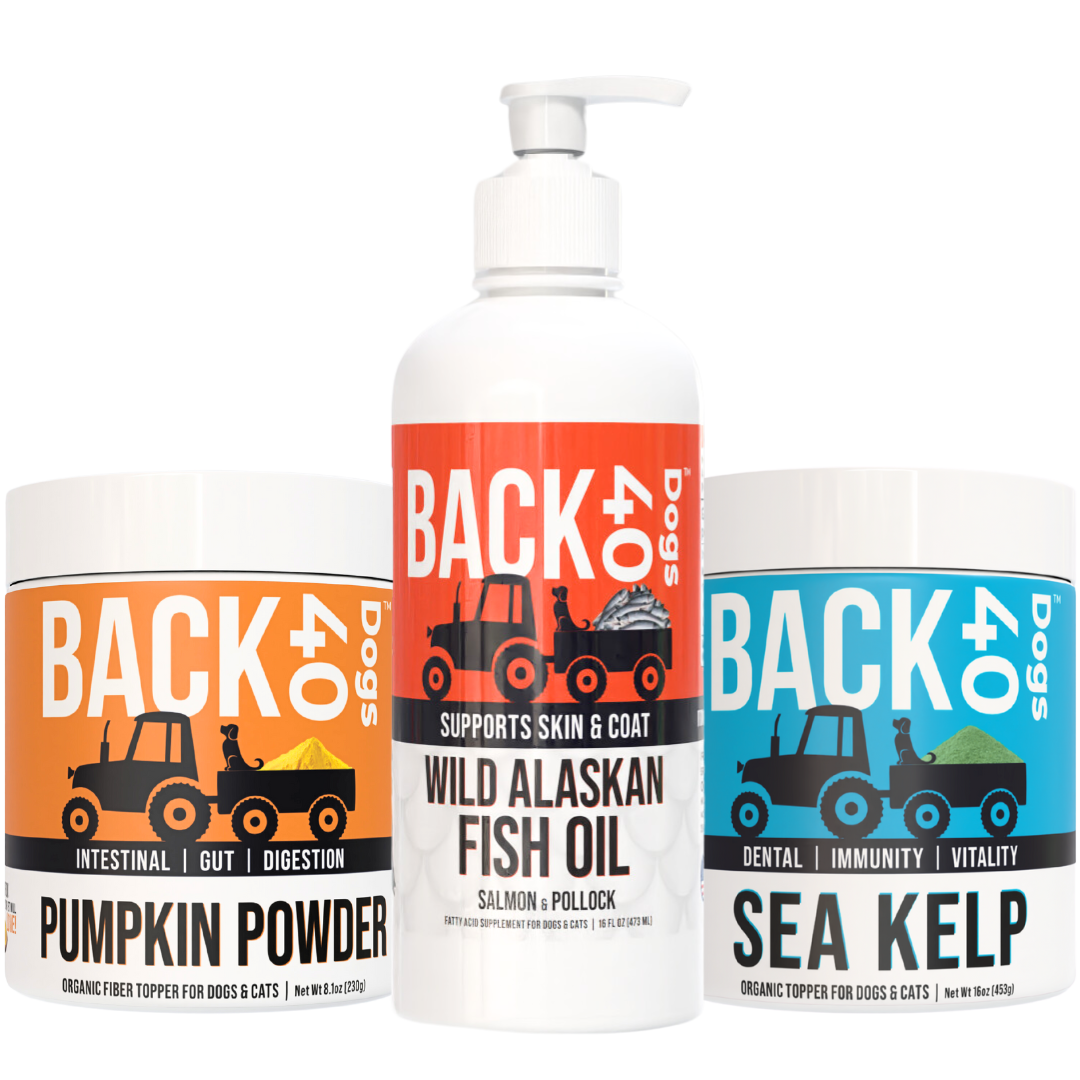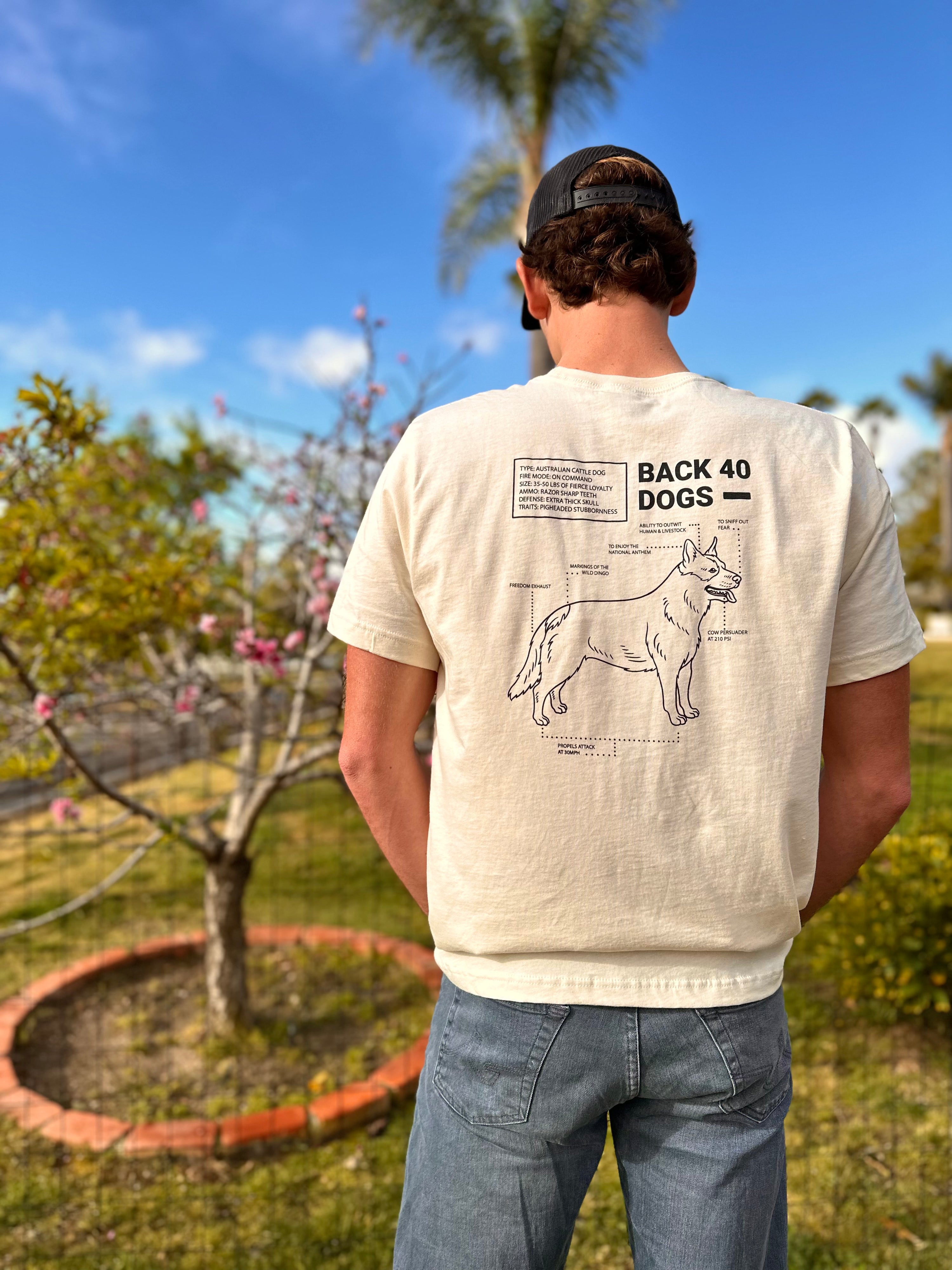

· By BACK 40 Dogs
Guide to Helping Your Dog's Upset Stomach Fast
As a pet parent, it can be distressing to see your beloved furry friend suffering from an upset stomach. Dogs can experience digestive problems from a variety of factors, including eating something that doesn't agree with them, sudden changes in their diet, or underlying health conditions. Fortunately, there are several remedies that you can try at home to help alleviate your dog's discomfort and get them back to their healthy and happy selves.

Bland diet
Some light fasting followed by gradually reintroducing bland food to their diet can help to not overload your dog's stomach. This meal should consist of something like boiled chicken or lean ground beef and plain white rice. The chicken or beef should be cooked thoroughly and shredded into small pieces. The rice should be cooked without any added salt or seasoning. You can also add a small amount of pumpkin powder to the meal, which can help soothe your dog's upset stomach and improve their digestive health.
Pumpkin
Pumpkin is a natural source of fiber, which can help regulate digestion and alleviate constipation or diarrhea. It also contains vitamins A, C, and E, which support your dog's immune system and overall health. When using pumpkin as a remedy for an upset stomach, it's important to use plain canned pumpkin or pumpkin powder, not pumpkin pie filling, which can contain added sugars and spices that are harmful to dogs.
You can mix a tablespoon or two of our pumpkin powder with your dog's regular food or give it to them as a standalone treat. The fiber in the pumpkin can help soothe your dog's digestive system and promote healthy bowel movements. However, it's important to note that pumpkin should not be used as a substitute for medical intervention if your dog's symptoms persist or worsen.
If your dog is experiencing severe or prolonged vomiting or diarrhea, it's important to seek medical attention from your veterinarian. Pumpkin can be a helpful supplement to support your dog's digestive health, but it's not a cure-all for more serious health conditions.
Probiotics
Probiotics are beneficial bacteria that can help restore balance to your dog's gut microbiome. They can be particularly helpful after a course of antibiotics or during periods of stress. Probiotics come in various forms, including powders, capsules, and chews. You can sprinkle the powder over your dog's food or mix the capsule contents with a small amount of water to administer orally.
Kelp (yes, from the ocean) is an amazing natural source of healthy digestive enzymes and probiotics to promote a healthy gut. Make sure you feed the correct portion and feed a high quality Kelp like this one.
Hydration
Keeping your dog hydrated is crucial when they're experiencing an upset stomach. Make sure they have access to clean, fresh water at all times. You can also offer them ice cubes or diluted chicken broth to encourage them to drink more fluids. Because of Pumpkin's rich fiber content it helps keep your dog hydrated as well by retaining the water it absorbs.
Exercise
Gentle exercise, such as short walks or playtime, can help stimulate your dog's digestive system and encourage regular bowel movements. However, it's important not to overdo it. If your dog is still experiencing symptoms or seems lethargic, it's best to allow them to rest and recover.
Avoid triggering foods
Certain foods can trigger an upset stomach in dogs. These include fatty or spicy foods, dairy products, and bones. It's essential to avoid feeding your dog table scraps or human food, as these can contain ingredients that are harmful to their digestive system.
Medical intervention
If your dog's symptoms persist or worsen, it's essential to seek medical attention from your veterinarian. They may need to perform diagnostic tests to identify any underlying health conditions that could be causing your dog's upset stomach. Your vet may also prescribe medication to help alleviate your dog's symptoms and restore their digestive health.
In conclusion, an upset stomach can be uncomfortable and distressing for your furry friend, but there are several remedies you can try at home to alleviate their discomfort. In some cases fasting, a bland diet, probiotics, hydration, gentle exercise, avoiding triggering foods, seeking natural remedies like kelp and pumpkin, and seeking medical intervention when necessary can all help improve your dog's digestive health. By taking proactive steps to support your dog's digestive system, you can ensure that they stay healthy, happy, and full of energy.
Share:
1 comment
-
I was searching for something on this topic on PetCareRx, but your article covers this in great detail. Thanks for sharing.
Zoey Samson on





